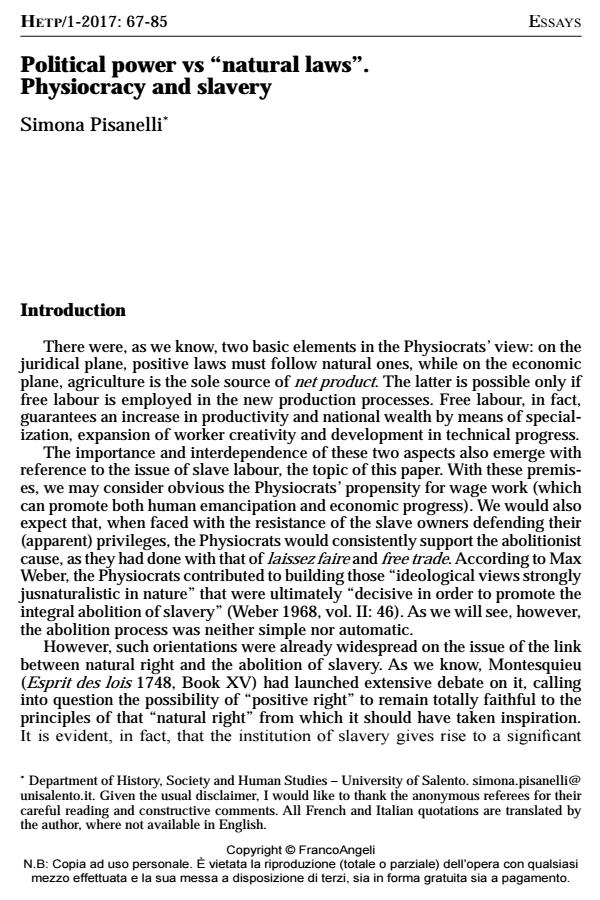Political power vs "natural laws". Physiocracy and slavery
Journal title HISTORY OF ECONOMIC THOUGHT AND POLICY
Author/s Simona Pisanelli
Publishing Year 2017 Issue 2017/1
Language English Pages 19 P. 67-85 File size 222 KB
DOI 10.3280/SPE2017-001003
DOI is like a bar code for intellectual property: to have more infomation
click here
Below, you can see the article first page
If you want to buy this article in PDF format, you can do it, following the instructions to buy download credits

FrancoAngeli is member of Publishers International Linking Association, Inc (PILA), a not-for-profit association which run the CrossRef service enabling links to and from online scholarly content.
As we know, there are two basic elements in the Physiocrats’ view: on the juridical plane, the belief that positive laws follow natural ones; on the economic plane, the idea that agriculture is the sole source of net product. The importance and interdependence of these two aspects also emerge with reference to the issue of slave labour and to the debate concerning its abolition. This article attempts to inquire into the ambiguities of the economic ideas of the Physiocrats, who, in theory, favored the use of free labour, but in practice were forced, out of political realism, to accept slave labor - even though it was seen as the outcome of a "sick" law. In particular, we will show that Le Mercier de la Rivière and Pierre Poivre, Physiocrats and colonial Intendants, gave up to the idea of the abolition of slavery, thus legitimising its continuation.
Keywords: Slavery, Free Labor, Physiocracy, Le Mercier de la Rivière, Pierre Poivre.
Jel codes: B11, B31
Simona Pisanelli, Political power vs "natural laws". Physiocracy and slavery in "HISTORY OF ECONOMIC THOUGHT AND POLICY" 1/2017, pp 67-85, DOI: 10.3280/SPE2017-001003